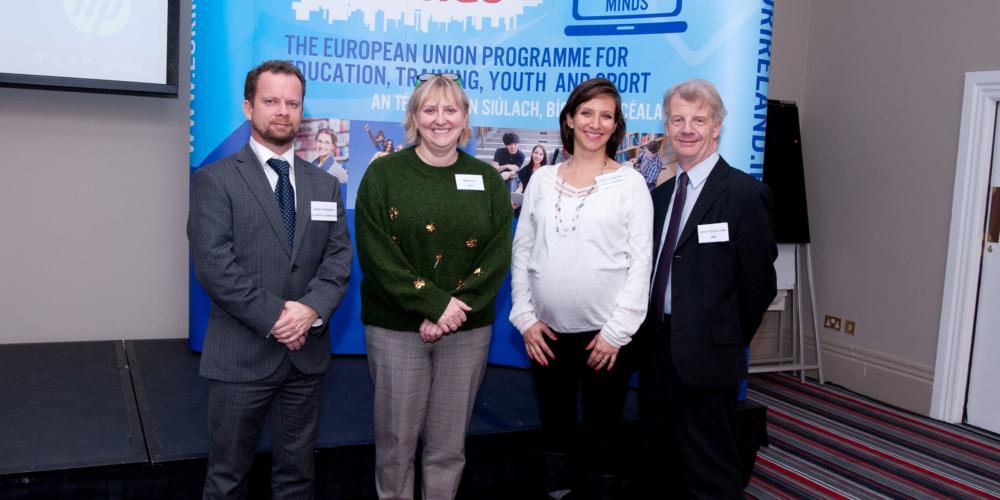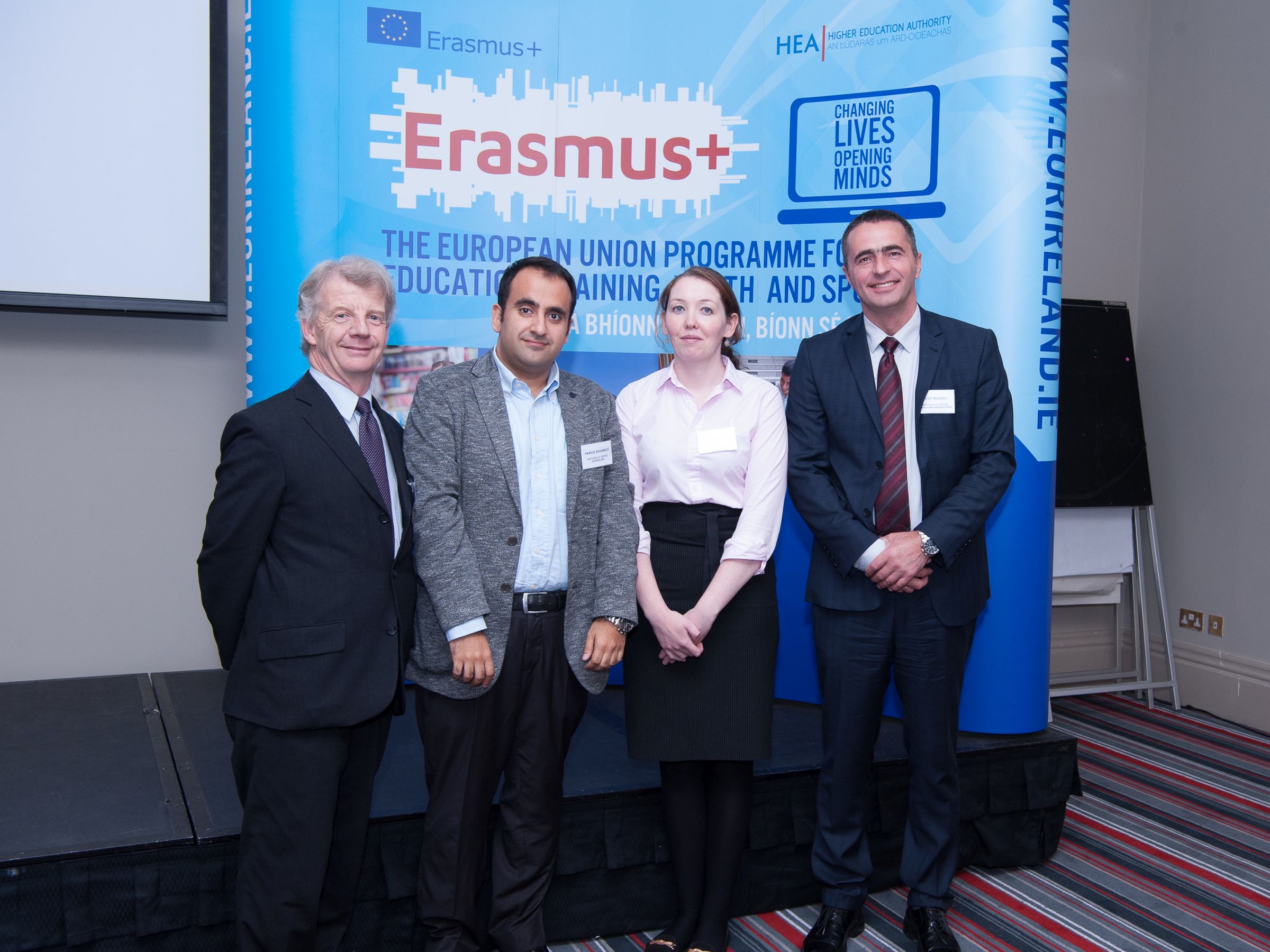
Erasmus+ Budget for Higher Education 2018 almost €13m
By Aoileann Ní Bhroin
The National Agency for Erasmus+ at the Higher Education will have €12,854,776 to allocate under the programme in 2018. These funds are part of a total budget of €2.7bn provided for the programme in the coming year.
Photo Caption above: Dr. Dara Fitzgerald, Executive Director, Fulbright Commission Ireland; Mary May Erasmus+ National Agency at HEA; Dr. Elsa El Hachem Kirby, Associate Professor, Lebanese University and Gerry O’Sullivan, Erasmus+ National Agency at HEA at the Erasmus+ InfoDay event in Dublin.
The European Commission today published its 2018 Call for Proposals for Erasmus+, the European Union’s programme for mobility and cooperation in education, training, youth and sport. With its annual budget expected to increase by €200 million, Erasmus+ will provide an unprecedented number of opportunities for individuals and organisations in Europe and beyond.
The Breakdown of the Irish Budget is as follows:
| Action | Amount € |
|---|---|
| Key Action 103 - Student and Staff Mobility to Programme Countries | 10,391,930 |
| Key Action 107 - Student and Staff Mobility to and from Partner Countries (International Credit Mobility) | 1,743,209 |
| Key Action 203 - Strategic Partnerships | 719,637 |
| Total | 12,854,776 |

Photo Above: Gerry O’Sullivan, Erasmus+ NA, Parviz Bagirov, NEO, Azerbaijan; Patricia Tutty, Erasmus+ NA; Suad Muhibic, NEO Bosnia and Herzegovina
Commenting on the announcement Tibor Navracsics, European Commissioner for Education, Culture, Youth and Sport, said: “I am pleased that in 2018 the European Union is set to invest €2.7 billion in Erasmus+ to support extremely valuable educational projects and provide hundreds of thousands of opportunities for young Europeans to study or train abroad. The celebrations marking the 30th anniversary of Erasmus throughout 2017 have highlighted the positive impact that this EU success story has on the lives of people all over Europe. As President Juncker underlined in June, every euro invested in Erasmus+ is an investment in the future of a young person and of the European idea. I also welcome the support of several Heads of State for the idea that Erasmus+ should be far more ambitious in the future.”
In 2018, Erasmus+ will continue to help implement the Commission’s policy priorities, notably the goals set out in the recent initiatives “A renewed agenda for Higher Education” and “School development and excellent teaching for a great start in life“. The overall aim of these initiatives is to help Member States provide high quality, inclusive and future-oriented education for all young people. In line with the New Skills Agenda for Europe, Erasmus+ will also remain a strong pillar in promoting the full range of knowledge, skills and competences that help people succeed in our fast-changing societies, including transversal skills such as creativity, problem-solving and an entrepreneurial mind-set.
In total, €2.7 billion in funding are expected to be available from Erasmus+ in 2018 to:
- promote mobility opportunities for young people, students, trainees, apprentices and international volunteers, as well as for teachers, trainers and youth workers;
- create or improve partnerships between education, training and youth organisations and with the world of work;
- support dialogue and evidence-building needed to deliver reform in education, training and youth systems;
- promote excellence in teaching and research in the field of European studies through the Jean Monnet activities; and
- support transnational projects in the field of sport, with a focus on grassroots sport.
Similar to previous years, Erasmus+ projects supporting social inclusion through education, youth and sport activities will be given priority in 2018.
In 2018, for learners in the field of vocational education and training, increased focus will be placed on long-duration mobility (ErasmusPro), in line with the Commission’s Communication on “Investing in Europe’s Youth” of 7 December 2016.
In order to further broaden the accessibility of the Erasmus+ programme in 2018, the Commission will introduce throughout Europe a simplified procedure for the submission of grant proposals through online web-forms and will also simplify grant opportunities for schools to take part in projects focusing on exchanges and mobility of pupils and staff.
In parallel, the Commission published today the Erasmus+ Programme Guide in all official EU languages. The Programme Guide is the key document that provides applicants with full details of all opportunities available in the 2018 Call for proposals for Erasmus+.
For More Information


